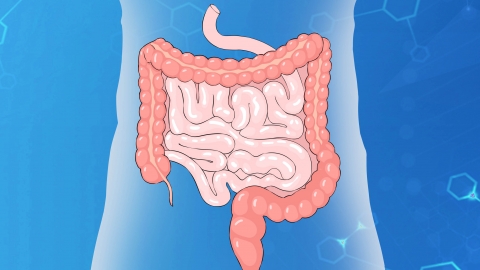How to prevent postoperative intestinal adhesions
To prevent postoperative intestinal adhesions, efforts should focus on promoting intestinal motility and minimizing tissue injury and inflammatory responses. Key preventive measures include early mobilization, scientific dietary adjustment, proper abdominal care, standardized medication use, and control of underlying inflammation. These strategies should be implemented appropriately according to the stage of postoperative recovery. A detailed analysis is as follows:

1. Early ambulation: Getting out of bed as early as possible under medical guidance is a core measure for preventing intestinal adhesions. Patients can begin turning in bed and moving limbs within 6–12 hours after surgery, then attempt to sit up or stand by the bedside within 24–48 hours, gradually progressing to slow walking.
2. Scientific dietary adjustment: Postoperative diet should follow a stepwise progression from liquid to semi-liquid, then to regular food. Initially, clear liquids such as rice broth and lotus root powder are recommended, avoiding gas-producing foods. After bowel function recovers, gradually introduce semi-liquid foods like porridge and soft noodles, then transition to fiber-rich vegetables and fruits.
3. Proper abdominal care: Under medical guidance, patients may perform abdominal massage after surgery—gently massaging in a clockwise direction around the navel for 10–15 minutes per session, 2–3 times daily—to stimulate intestinal motility. Keep the abdomen warm and avoid cold exposure, which may trigger intestinal spasms and impair recovery of bowel function.
4. Standardized postoperative medication: Follow medical instructions for antibiotic use to prevent infection and reduce inflammatory exudates that may promote adhesion formation. If significant postoperative pain occurs, use analgesics only as directed by a physician to avoid reduced mobility and slowed intestinal motility due to pain. Avoid self-administering medications that may suppress gastrointestinal motility.
5. Control of underlying inflammation: If conditions such as peritonitis or enteritis exist before surgery, they should be thoroughly treated prior to the operation to minimize pre-existing inflammatory irritation of the intestine. After surgery, closely monitor the surgical wound and abdominal condition. Promptly report signs of infection such as fever or worsening abdominal pain to the medical team to prevent inflammation from spreading and increasing the risk of adhesions.
Patients must strictly follow healthcare professionals' instructions and adjust preventive measures according to individual recovery progress. Maintaining a regular作息 (daily routine), avoiding excessive fatigue, and keeping emotional stability all contribute to the recovery of intestinal function.






